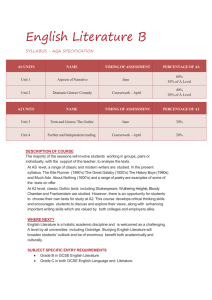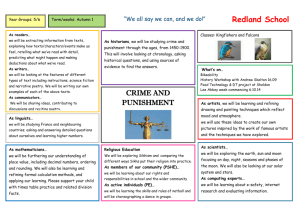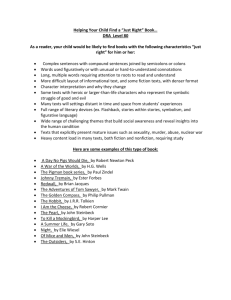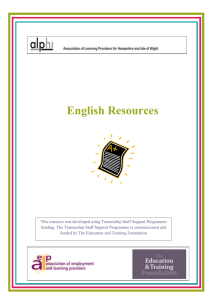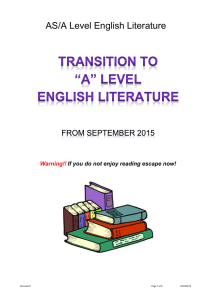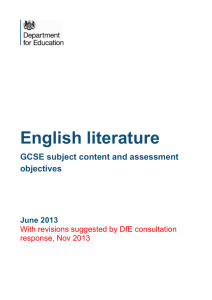ENGLISH LITERATURE - GCE ADVANCED LEVEL
advertisement
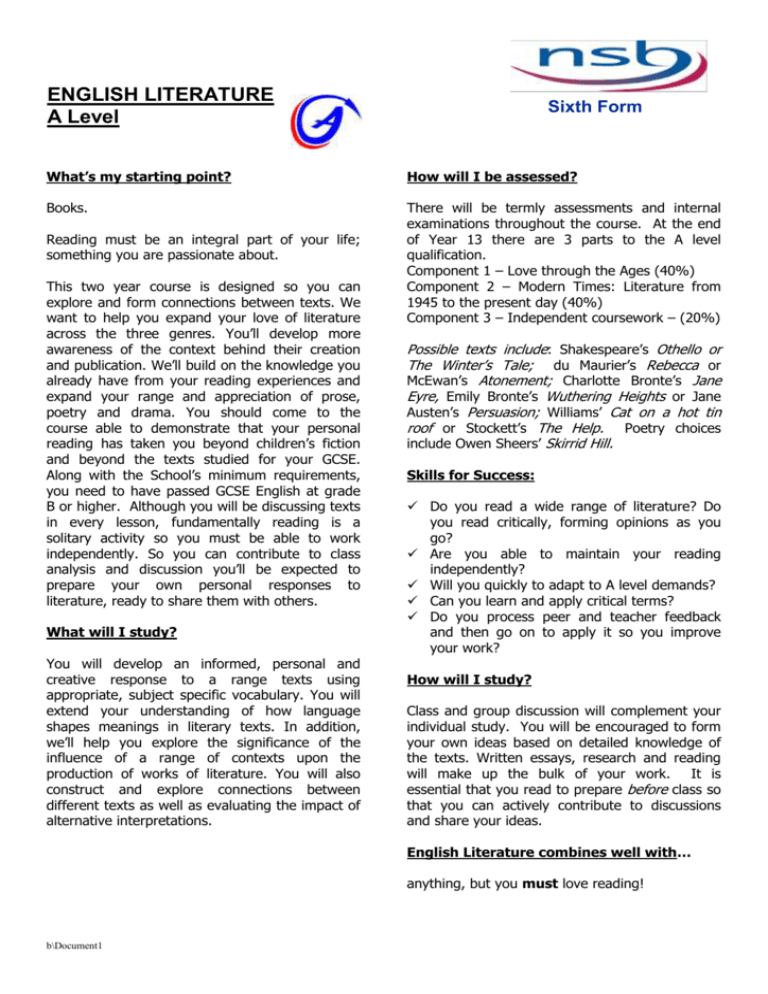
ENGLISH LITERATURE A Level Sixth Form What’s my starting point? How will I be assessed? Books. There will be termly assessments and internal examinations throughout the course. At the end of Year 13 there are 3 parts to the A level qualification. Component 1 – Love through the Ages (40%) Component 2 – Modern Times: Literature from 1945 to the present day (40%) Component 3 – Independent coursework – (20%) Reading must be an integral part of your life; something you are passionate about. This two year course is designed so you can explore and form connections between texts. We want to help you expand your love of literature across the three genres. You’ll develop more awareness of the context behind their creation and publication. We’ll build on the knowledge you already have from your reading experiences and expand your range and appreciation of prose, poetry and drama. You should come to the course able to demonstrate that your personal reading has taken you beyond children’s fiction and beyond the texts studied for your GCSE. Along with the School’s minimum requirements, you need to have passed GCSE English at grade B or higher. Although you will be discussing texts in every lesson, fundamentally reading is a solitary activity so you must be able to work independently. So you can contribute to class analysis and discussion you’ll be expected to prepare your own personal responses to literature, ready to share them with others. What will I study? You will develop an informed, personal and creative response to a range texts using appropriate, subject specific vocabulary. You will extend your understanding of how language shapes meanings in literary texts. In addition, we’ll help you explore the significance of the influence of a range of contexts upon the production of works of literature. You will also construct and explore connections between different texts as well as evaluating the impact of alternative interpretations. Possible texts include: Shakespeare’s Othello or The Winter’s Tale; du Maurier’s Rebecca or McEwan’s Atonement; Charlotte Bronte’s Jane Eyre, Emily Bronte’s Wuthering Heights or Jane Austen’s Persuasion; Williams’ Cat on a hot tin roof or Stockett’s The Help. Poetry choices include Owen Sheers’ Skirrid Hill. Skills for Success: Do you read a wide range of literature? Do you read critically, forming opinions as you go? Are you able to maintain your reading independently? Will you quickly to adapt to A level demands? Can you learn and apply critical terms? Do you process peer and teacher feedback and then go on to apply it so you improve your work? How will I study? Class and group discussion will complement your individual study. You will be encouraged to form your own ideas based on detailed knowledge of the texts. Written essays, research and reading will make up the bulk of your work. It is essential that you read to prepare before class so that you can actively contribute to discussions and share your ideas. English Literature combines well with… anything, but you must love reading! b\Document1





